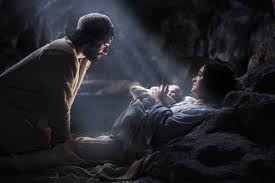 |
| Pope John Paul II and the future Pope Benedict XVI |
If you pray before meals at home, do you also say grace when eating at a restaurant? I've not always been consistent on this, but have been making a concerted effort of late, and my family and I had a funny thing happen recently.
My wife and I went out to eat with my mother, my siblings and their spouses--celebrating a couple birthdays. Apparently, the waitress was not in as festive a mood as we were, and somehow we were managing to annoy her (perhaps by not ordering quite as quickly as she wanted). I had noticed her overall demeanor and thought it was going to be a long night.
After the appetizers arrived, we paused, blessed ourselves and prayed our grace before the meal. The waitress noticed this as she re-entered the room and proceeded to walk up to the table and announce, "Well, you don't see too much of that any more." From then on, we were her favorite table, and she made delightful conversation with us as she talked about the menu and kept the food and drink flowing!
 |
| Pope Paul VI |
This little incident reminded me that evangelization doesn't have to be awkward or uncomfortable; it should be something natural.
As our recent (and current) Holy Fathers have reminded us, evangelization is simply a matter of sharing the Good News of the Gospel--a matter of sharing the joy of knowing Christ.
Indeed, in his groundbreaking encyclical letter on
Evangelization in the Modern World, Pope Paul VI famously proclaimed:
“The task of evangelizing all people constitutes the essential mission of the Church. It is a task and mission which the vast and profound changes of present-day society make all the more urgent. Evangelizing is in fact the grace and vocation proper to the Church, her deepest identity. She exists in order to evangelize” (EN, n. 14).
Evangelization is simply what we are all about as disciples of Christ. If the Church exists in order to evangelize, it's because every human person exists to be evangelized. Everyone is looking for a Way or a Truth or a Life that can give the deeper meaning, the authentic belonging, the gift of reconciliation and total acceptance which every human person desires. Sometimes evangelization is a matter of saying just the right words at just the right moment (thanks to the Holy Spirit); oftentimes it is a matter of small actions. Making the "sign of the Cross" in a restaurant won't always lead to better service (in fact, it could get worse!), but it might remind other Catholics that they are not alone. And it might nudge others to silently express gratitude for the many gifts they have received.
Christianity isn't just a religion. It's a Way of Life, the journey of a lifetime And evangelization is about giving witness to this life--in small, often simple moments--everyday.
















